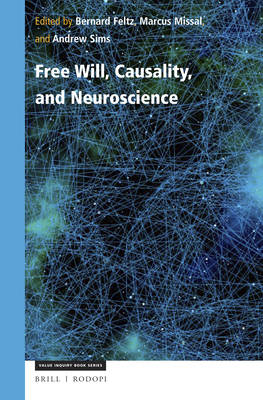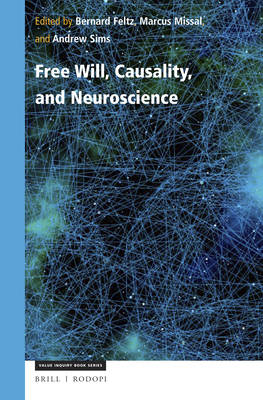
- Afhalen na 1 uur in een winkel met voorraad
- Gratis thuislevering in België vanaf € 30
- Ruim aanbod met 7 miljoen producten
- Afhalen na 1 uur in een winkel met voorraad
- Gratis thuislevering in België vanaf € 30
- Ruim aanbod met 7 miljoen producten
Zoeken
Free Will, Causality, and Neuroscience
€ 196,95
+ 393 punten
Omschrijving
Neuroscientists often consider free will to be an illusion. Contrary to this hypothesis, the contributions to this volume show that recent developments in neuroscience can also support the existence of free will. Firstly, the possibility of intentional consciousness is studied. Secondly, Libet's experiments are discussed from this new perspective. Thirdly, the relationship between free will, causality and language is analyzed. This approach suggests that language grants the human brain a possibility to articulate a meaningful personal life. Therefore, human beings can escape strict biological determinism.
Contributing author Sofia Bonicalzi has received funding from the European Union's Framework Programme for Research and Innovation Horizon 2020 (2014-2020) under the Marie Sklodowska-Curie Grant Agreement No. 754388 (LMUResearchFellows) and from LMUexcellent, funded by the Federal Ministry of Education and Research (BMBF) and the Free State of Bavaria under the Excellence Strategy of the German Federal Government and the Länder.
Contributing author Sofia Bonicalzi has received funding from the European Union's Framework Programme for Research and Innovation Horizon 2020 (2014-2020) under the Marie Sklodowska-Curie Grant Agreement No. 754388 (LMUResearchFellows) and from LMUexcellent, funded by the Federal Ministry of Education and Research (BMBF) and the Free State of Bavaria under the Excellence Strategy of the German Federal Government and the Länder.
Specificaties
Betrokkenen
- Uitgeverij:
Inhoud
- Aantal bladzijden:
- 192
- Taal:
- Engels
- Reeks:
- Reeksnummer:
- nr. 338
Eigenschappen
- Productcode (EAN):
- 9789004372917
- Verschijningsdatum:
- 1/11/2019
- Uitvoering:
- Hardcover
- Formaat:
- Genaaid
- Afmetingen:
- 157 mm x 236 mm
- Gewicht:
- 362 g

Alleen bij Standaard Boekhandel
+ 393 punten op je klantenkaart van Standaard Boekhandel
Beoordelingen
We publiceren alleen reviews die voldoen aan de voorwaarden voor reviews. Bekijk onze voorwaarden voor reviews.










